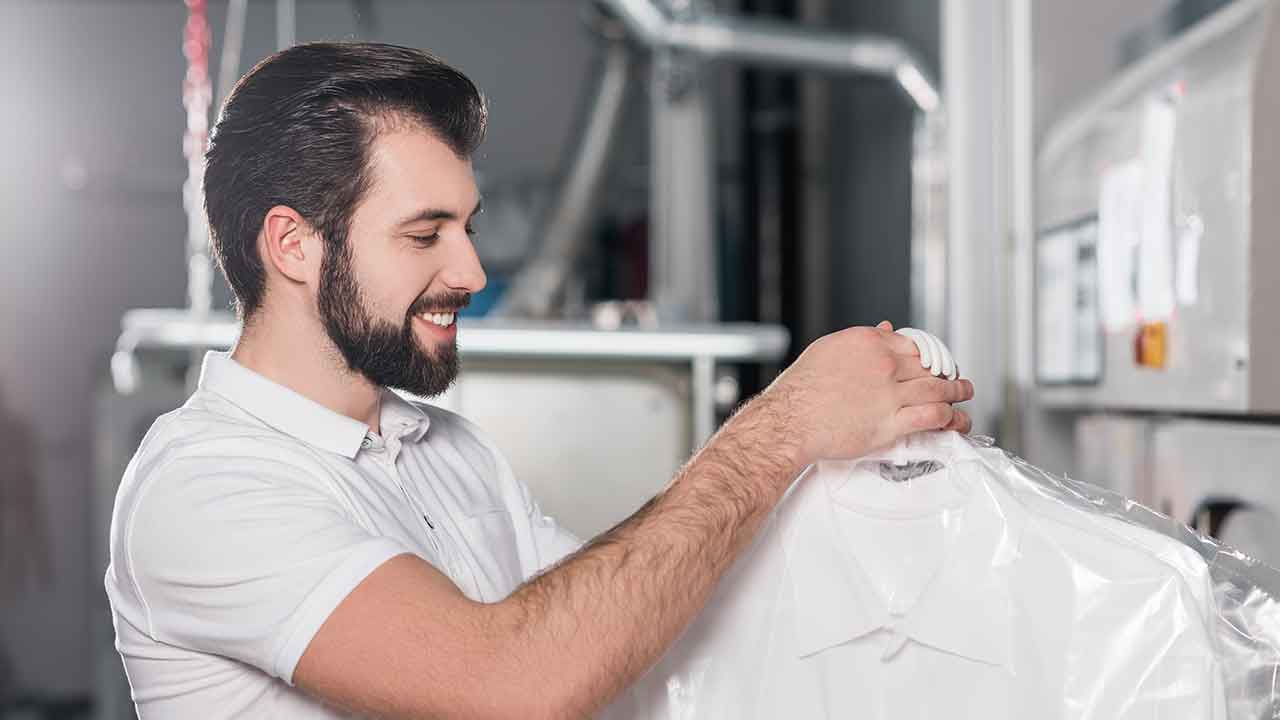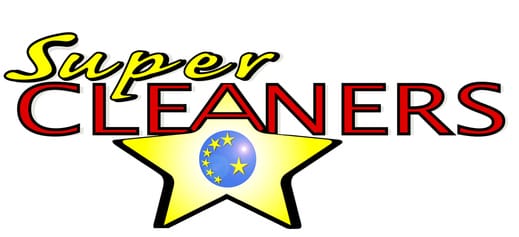How does dry cleaning work?

Many of us may not be paying much attention to the chemicals found in everyday products we use. They’re in our cleaning supplies, personal care products, food and food packaging, fresheners and fragrances, and of course, in our laundry products.
So with all the chemicals surrounding us, why should you (or anyone), care about eco-friendly dry cleaning? Should we be concerned about how our clothes are getting cleaned, just as we are about the ingredients in our food or the products we use on our skin?
It’s not a simple ‘yes’ or ‘no’ answer. Rather, understanding the potential impacts of traditional dry cleaning methods and the benefits of opting for eco-friendly alternatives is a much better approach to making informed decisions about our clothing care routine.
Keep reading to gain deeper insights into how green dry cleaners in Nevada are making a difference and how you can support this crucial movement.
What Exactly Are Eco-Friendly Dry Cleaning Practices?
The common explanation we hear about eco-friendly dry cleaning is that it’s the opposite to traditional methods. But how does this greener method differ from the conventional techniques that have dominated cleaners in Las Vegas and beyond?
Defining Eco-Friendly Dry Cleaning
Eco-friendly dry cleaning encompasses various techniques and solvents that prioritize minimizing environmental impact and potential health risks associated with the cleaning process. These methods often involve:
- Non-toxic solvents: Replacing harsh chemicals like perchloroethylene (perc) with biodegradable solvents derived from plant-based sources, like citrus or soy, or utilizing silicone-based solvents that are reusable and less harmful.
- Water-based cleaning: Wet cleaning is a method that uses specialized washing machines with gentle detergents and precise water control to clean garments typically categorized as “dry clean only.”
- Liquid carbon dioxide (CO2) cleaning: This method utilizes pressurized liquid CO2 as a cleaning agent. The CO2 acts as a solvent to remove dirt and stains without the use of traditional chemicals.
While these are the main categories of eco-friendly cleaning, individual dry cleaners may have their own specific variations and processes.
How Eco-Friendly Dry Cleaning Differs from the So-called Traditional Dry Cleaning
Traditional dry cleaning typically uses perchloroethylene (perc), a solvent known for its effectiveness, and also for its potential health and environmental drawbacks. Here’s a breakdown of the key differences:
- Solvents: As mentioned earlier, eco-friendly methods avoid perc and utilize less harmful alternatives.
- Environmental impact: Traditional dry cleaning can release harmful chemicals into the air and potentially contaminate water sources. Eco-friendly methods are designed to minimize such risks.
- Health concerns: Perc exposure has been linked to various health concerns. Eco-friendly options are generally considered less hazardous.
- Fabric care: While both methods aim to clean garments, eco-friendly methods may be gentler on delicate fabrics, potentially extending their lifespan.
The Benefits of Green Dry Cleaning Methods to Nevada Community

Nevada’s nod towards green dry cleaning stems from a regional commitment to protect the mesmerizing desert around, coupled with the bustling urban life that demands constant innovation. Cities like Las Vegas are leading by example, integrating sustainable practices into every facet of life, including how we care for our clothing.
The increasing preference for eco-friendly dry cleaning among Nevadans has led them to reap the following benefits:
Environmental Conservation
Traditional dry cleaning solvents like perchloroethylene (perc) can contaminate soil, air, and waterways if not properly managed. By using alternative solvents such as liquid silicone or carbon dioxide, green dry cleaners help mitigate these environmental risks and protect Nevada’s natural ecosystems.
Improved Air Quality
The use of non-toxic solvents in eco-friendly dry cleaning processes results in improved air quality within the community. Traditional dry cleaning solvents like perc can emit harmful volatile organic compounds (VOCs) into the air, contributing to air pollution and posing health risks to nearby residents. Green dry cleaning methods eliminate these harmful emissions, promoting healthier indoor and outdoor environments for Nevada residents.
Safer for Workers
Green dry cleaning practices prioritize the safety and well-being of workers in the garment care industry. Exposure to hazardous chemicals in traditional dry cleaning processes can pose serious health risks to dry cleaning personnel. By transitioning to eco-friendly methods that use safer solvents and equipment, dry cleaning businesses can create safer working environments and protect the health of their employees.
Sustainable Economic Growth
The adoption of eco-friendly dry cleaning practices can contribute to sustainable economic growth within the Nevada community. By investing in energy-efficient equipment, implementing water-saving measures, and reducing waste, green dry cleaners can lower operating costs and improve overall efficiency. This not only benefits the bottom line of individual businesses but also fosters a culture of sustainability that supports long-term economic resilience in the community.
Consumer Confidence
By choosing eco-friendly dry cleaning services, Nevada residents can feel confident that they are supporting businesses that share their values and are committed to minimizing their environmental footprint. This fosters a sense of trust and loyalty between businesses and consumers, strengthening the fabric of the local community.
Questions to Ask Your Dry Cleaner About Their Eco Practices
With the growing interest in eco-friendly dry cleaning, it’s natural to want to ensure your chosen dry cleaner aligns with your values. Here’s a list of questions you can ask your dry cleaner to gain a clearer understanding of their environmental practices:
Understanding Their Cleaning Methods
- What types of cleaning solvents do you use?
- Do you offer eco-friendly cleaning options, such as those using non-toxic solvents or water-based cleaning?
- Are your cleaning processes certified by any eco-friendly organizations? (Examples: GreenEarth Cleaning Institute, GIA [Global Industrial Cleaning Association])
Waste Management and Sustainability
- How do you dispose of used cleaning solvents?
- Do you have any recycling programs in place for hangers, garment bags, or other materials?
- Do you use energy-efficient equipment in your cleaning process?
Transparency and Expertise
- Can you tell me more about the specific eco-friendly cleaning methods you offer?
- Do your employees receive training on eco-friendly cleaning practices?
- Are there any limitations to the types of garments you can clean using eco-friendly methods?
Ask Super Cleaners About Eco-Friendly Options Today!
At Super Cleaners, we stand at the forefront of eco-friendly dry cleaning in Nevada, a testament to our deep commitment to both the welfare of our planet and the people we serve. Embracing innovative techniques and selecting only the most sustainable materials, we not only guarantee the impeccable care of your garments but also assure you of our dedication to environmental stewardship.
Super Cleaners has been serving the Las Vegas community for over 20 years, and we are the only family-owned dry cleaners on the strip. Aside from our Strip location, we have two other convenient locations around the valley. All our dry cleaning and even laundry processes steer clear of harmful chemicals such as PERC. Thanks to our PERC-free dry cleaning process, renowned for its eco-friendliness, we’ve earned the reputation of being the greener dry cleaner in Las Vegas.
For added convenience, avail yourself of our free pickup & delivery services across Las Vegas, NV, and the surrounding areas. Contact us today if you’d like to request this service!
FREQUENTLY ASKED QUESTIONS
What makes dry cleaning eco-friendly?
A green cleaner in Vegas uses non-toxic solvents and employs water conservation measures that align with your ethics, ensuring that your wedding dress or cherished leather pieces are not only impeccably cleaned but done so sustainably. They might also offer repair services, breathing new life into your favorite pieces, further reducing waste. Of course, when choosing your dry cleaning service, the price is a consideration, but the value comes from the quality of service, the eco-friendly practices employed, and the peace of mind that your clothing is in expert hands.
How has the dry cleaning industry evolved in Nevada towards more sustainable practices?
In Nevada, and even other counties in the United States, the evolution of the dry cleaning landscape toward more sustainable practices has been marked by a significant shift towards eco-friendly solvents and energy-efficient processes, reflecting a growing awareness of environmental impact.
How do dry cleaners stay relevant in the competitive dry cleaning industry?
To stay competitive and resonant with tech-savvy consumers, these businesses aren’t just stopping at green cleaning solutions. They’re embracing mobile apps and delivery services, making it easier than ever to tick “drop off dry cleaning” off your to-do list—without even leaving your home. Imagine getting your breakfast in Las Vegas, only to have your freshly cleaned suit delivered to your doorstep by the time you’re finished, all with a few taps on your phone.
How can customers differentiate between traditional dry cleaning and eco-friendly alternatives?
Consumers can distinguish between traditional dry cleaning and eco-friendly alternatives by scrutinizing the cleaning agents and processes used. Traditional cleaners often rely on perchloroethylene (perc), a chemical with environmental and health risks, whereas eco-friendly methods utilize biodegradable, non-toxic solvents and emphasize water conservation.
